
Last year I wrote posts about listening to the radio, watching TV and having a landline phone in the 2020s (in Dutch). Today, I want to talk about the place left for optical storage in the 2020s.
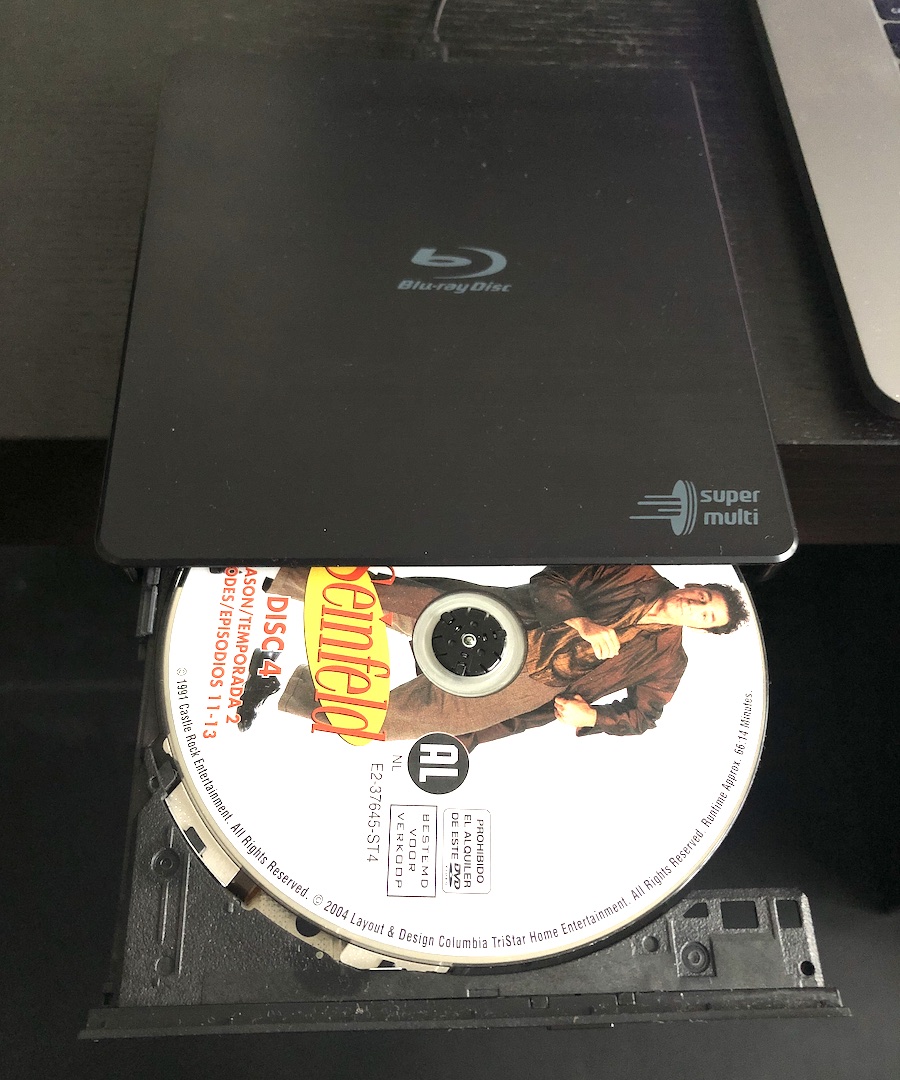
So now I got that new optical drive and can start burning CDs, DVDs, BDs (regular 25 and 50 GB blu-ray discs) and BDXLs (newer 100 and 128 GB BDs). But how long will those last?
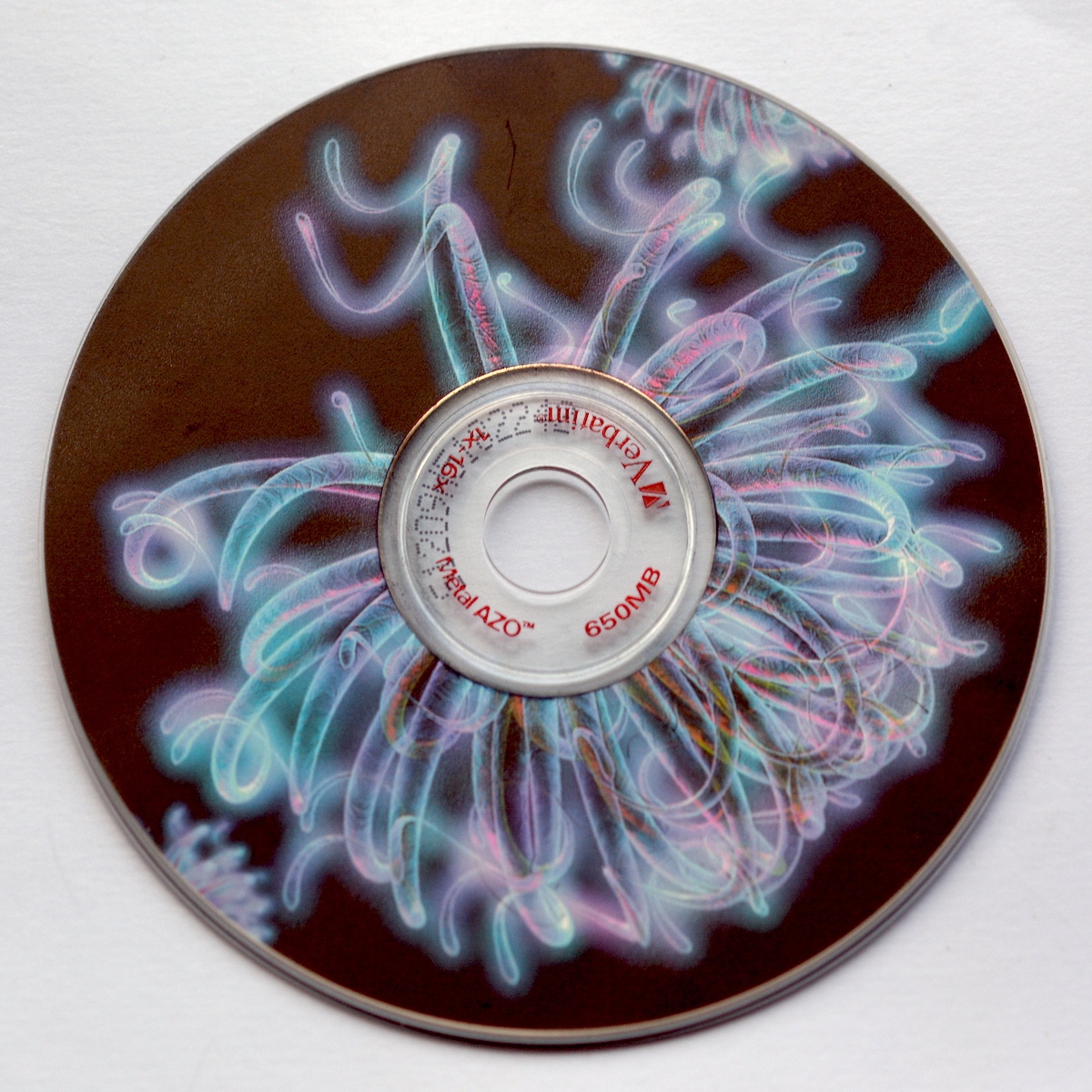
I thought it was time to ramble on about Unicode and UTF-8 a bit, inspired by the need to convert old Amiga text files that have accents in them that won't display properly on my current Macs. Also some food for thought for programmers.
Read the article - posted 2022-01-30
A few months ago, I ordered the Drop + Matt3O MT3 retro keycap set:
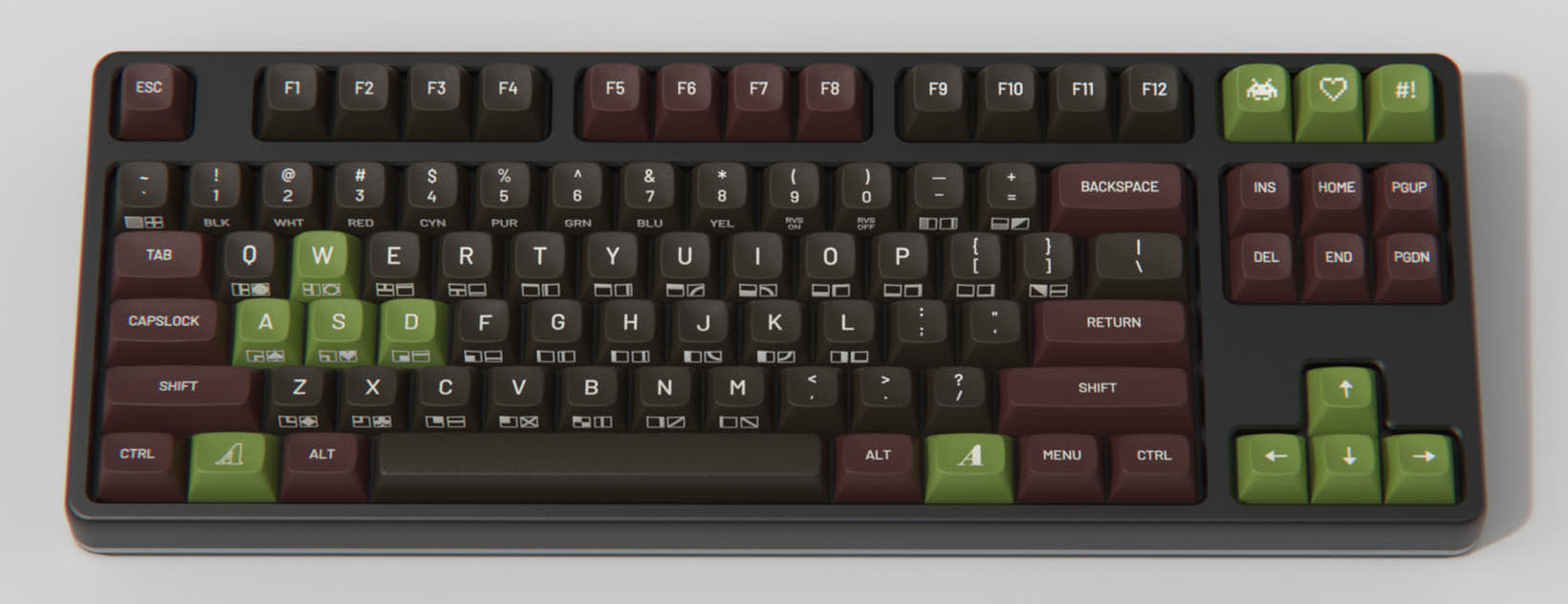
These keycaps have the cool/retro "PETSCII" characters printed on the front. But how do you actually type those PETSCII characters?
Read the article - posted 2022-03-23
I thought it might be interesting to talk a bit about how my PETSCII typer web tool came together.
It all started with the Drop + Matt3O MT3 retro keycap set. I ordered this set because I like the old style key shape that's replicated here. And then as a bonus you get the PETSCII characters we know and love from the Commodore 8 bit computers printed on the front of the keycaps.
Not sure how I ended up there, but I found the Style64 C64 TrueType fonts, which replicate Commodore's take on the ASCII character set, usually referred to as PETSCII because the Commodore PET computer from 1977 introduced it.
So now I can have PETSCII graphical characters on my keyboard and PETSCII on my screen. The one missing thing: pressing a key and having the PETSCII character on that key show up on the screen. That's what the PETSCII typer does.
Read the article - posted 2022-03-26
On his Youtube channel, Matt Heffernan has a series of 8-bit Battle Royale videos to see which 8-bit computer is fastest. For this, he uses a simple program to calculate the world's lowest resolution mandelbrot set. Still, the Commodore 64 and ZX Spectrum take minutes to do this in BASIC. It's much faster in assembly.
Watching the videos, I started wondering how 16 or 32 bit computers like the Amiga would perform. Or even the C64 with a C version of the same program. So I made a C version.
Read the article - posted 2022-03-29
Back in the early 1980s, kids such as myself had their first computing experiences with 8-bit home computers such as the ZX Spectrum and the Commodore 64. And the only way, or in Europe in those days, the only affordable way to load games and save/load your own programs was from cassette tape. And boy was that slow.
If we suddenly had a perfectly-reliable cassette tape, how fast could we possibly load data from it? This is a question I started pondering a while ago. To answer it, I had to do look into how data is stored on tape and how exactly we load it. Along the way, we'll find several limits and assumptions we have to work around on our quest for the fastest-possible loading.Read the article - posted 2022-04-03
On friday, I received my preordered THEA500 Mini. This is smaller and modern version of the Commodore Amiga 500 computer from 1987. By the same company that makes a similar version of the Commodore 64.
After exploring the A500 Mini for a few days, I can't really make up my mind on whether I like it, or it's too limited. So here some first impressions, I'll probably do a more complete review later.

Although there were definitely other CPUs in use in the 1980s, the vast majority of microcomputers people had at home or at the office used either a MOS 6502 or one of its variants, a Zilog Z80, an early member of the Intel 8086 family, or a Motorola 68000. Let's have a look at those four CPUs.
Read the article - posted 2022-04-19
This is the third generation iPod that I bought for an enormous amount of money back in 2003. It has a "20 GB" (more like 18 and change) harddisk and came with a dock and a wired remote control. It still looks cool although the screen seems so small now. The red LEDs behind the touch buttons are very nice, but the touch buttons are a usability nightmare because you can't feel around for the buttons because then you'll activate them.
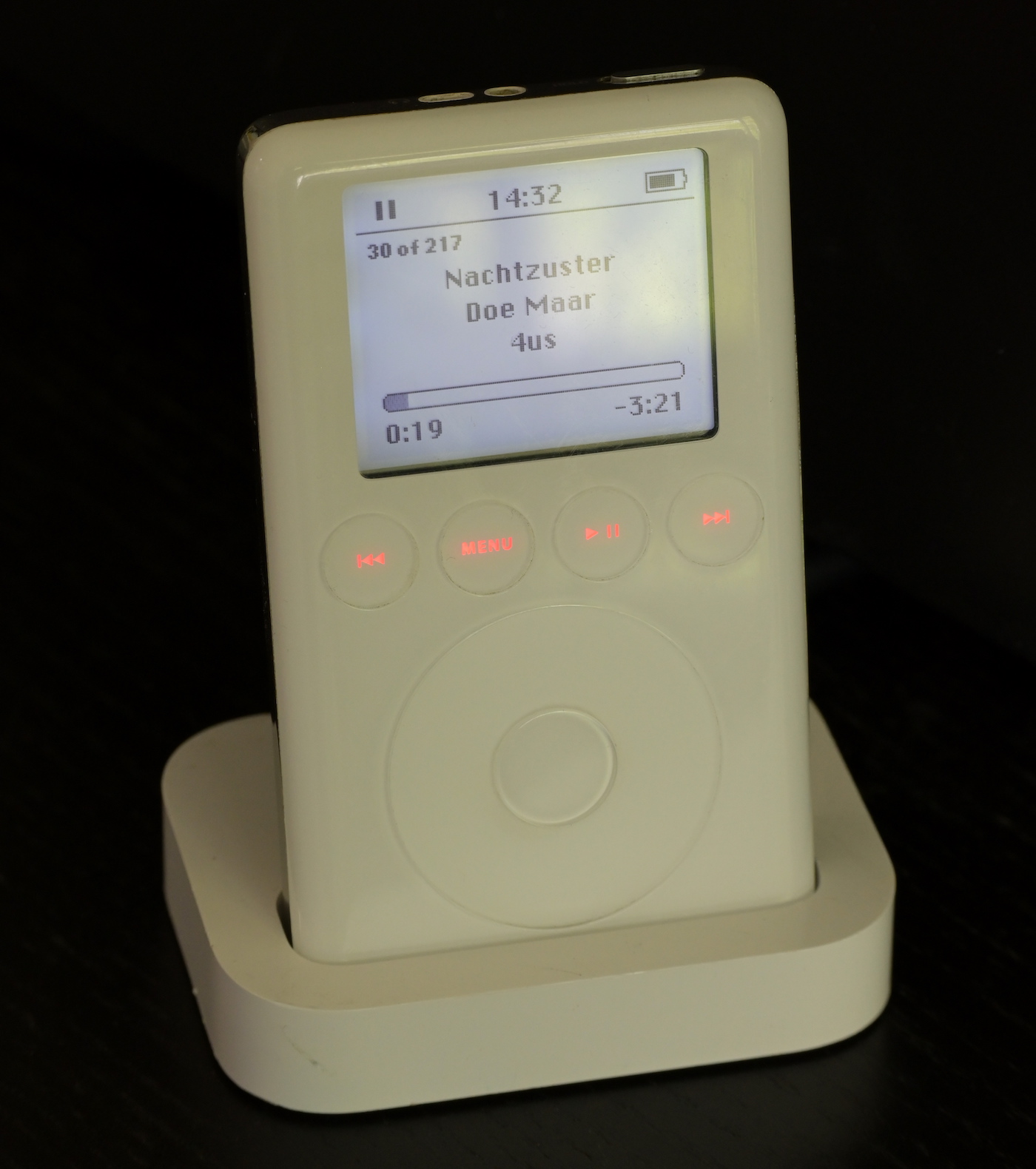
My later fifth generation iPod with 30 GB and a color screen that plays video has the click wheel, where the 12, 3, 6 and 9 o'clock positions of the wheel are also buttons, that works much better. Unlike the older one, it also supports podcasts. But it hasn't aged as well, with even less battery life even though I replaced the battery a decade ago, and the screen backlight has issues.
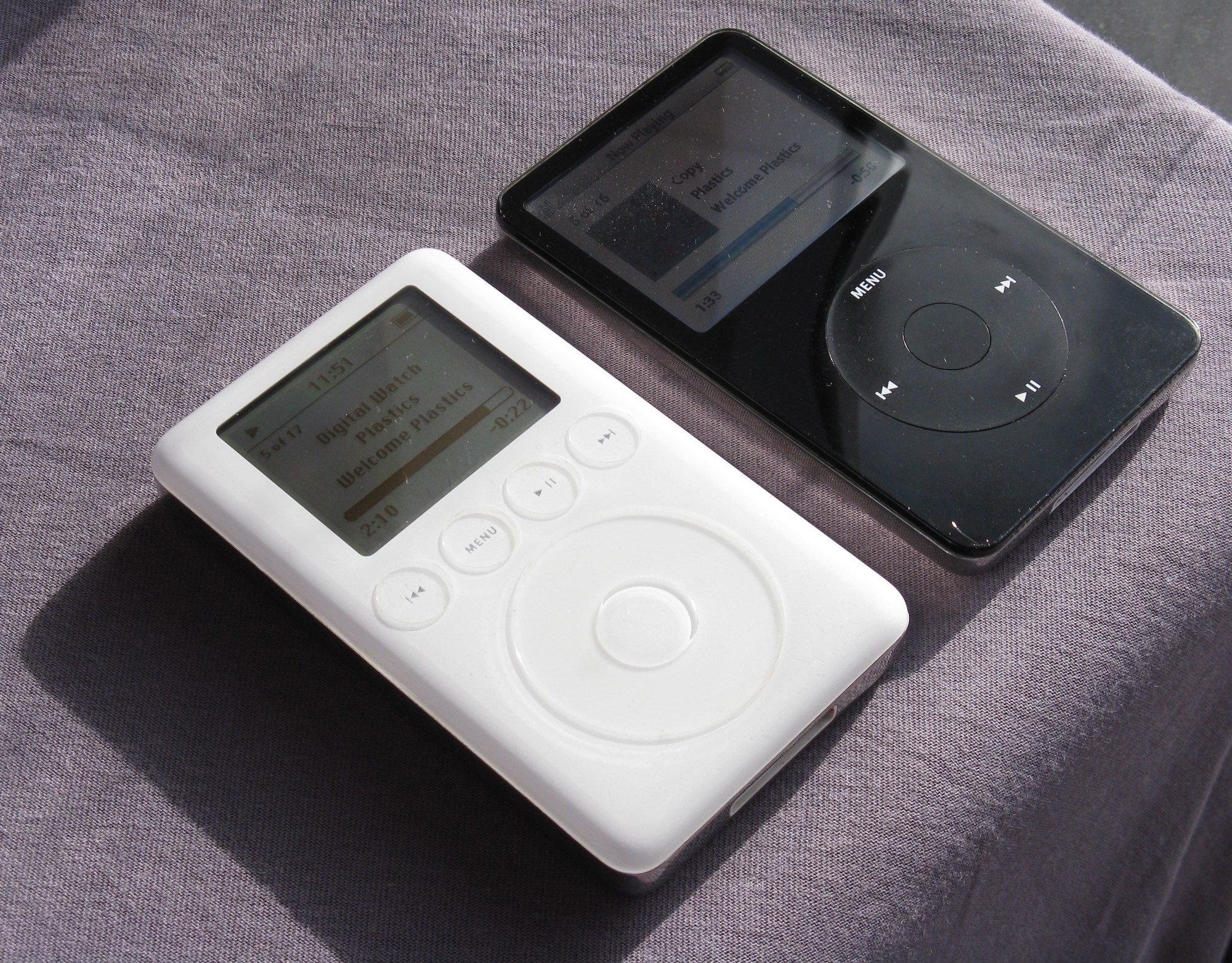
The 3rd gen iPod only syncs over Firewire or USB, but only charges over Firewire. The 5th gen iPod only syncs over USB, but charges over Firewire or USB. However, with the battery being in a very sorry state, USB + the battery combined don't deliver enough power to start the iPod up successfully. So I first have to charge it on Firewire and then it has enough juice to be synced over USB.
Anyway, I was very happy with my iPods from when I got my first one in 2003 until I got my first iPhone in 2008. Apple discontinued the iPod "classic" in 2014 and the iPod Nano in 2017. They kept the iPod Touch around until this week, but that's not really an iPod, it's an iPhone without the phone part.
Permalink - posted 2022-05-13
The A500 Mini, the Logitech F710 and Attack of the PETSCII Robots: an excellent combination. So let me cover all three in a single review.
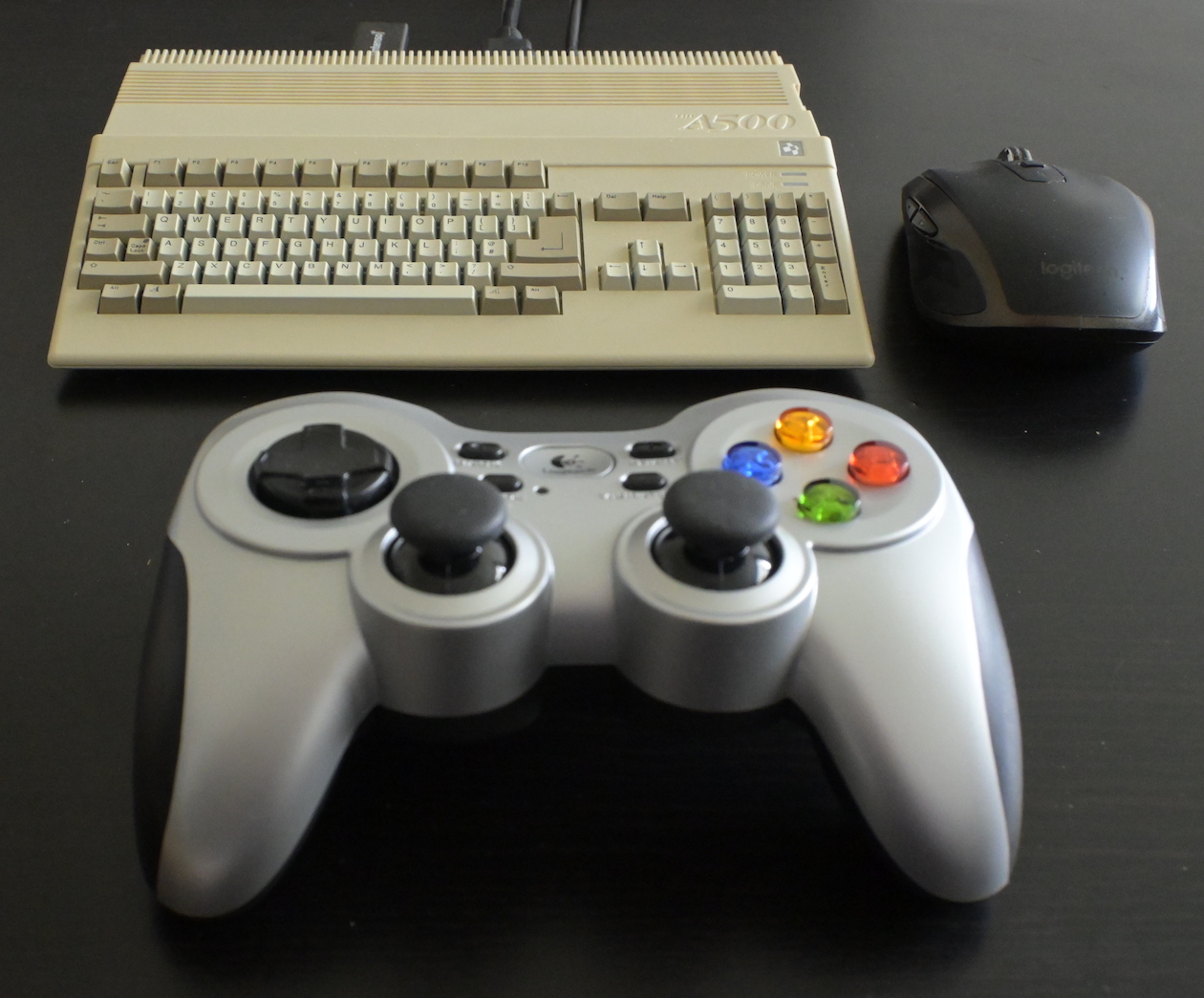
In this digital age, we still may want to shoot photos on film. But what type of film?
Or why film in the first place?
I think that last question will have a different answer for everyone. For me, it's the joy of seeing decades old machines do what they were built to do so cleanly. I can just pull the film advance lever and push the shutter on my Nikon FE time and time again, it never gets old. It's even better when there's film in the camera. Although of course then this starts to cost real money.
Read the article - posted 2022-06-19
In an infinite universe, everything that's possible does in fact exist. I've long held the position that the internet is pretty much an infinite universe.
So of course a Youtube video where someone created an accordion-like instrument consisting of two C64s with bellows made out of 5¼" floppy disks playing Scott Joplin ragtime classics does exist on the internet. Enjoy!
Permalink - posted 2022-10-23